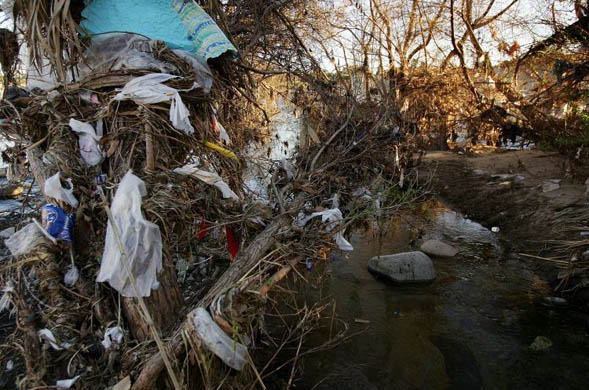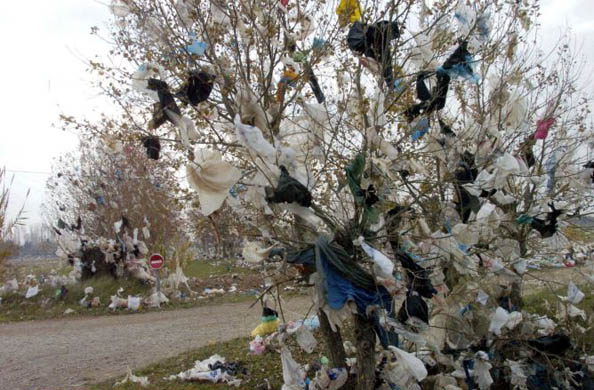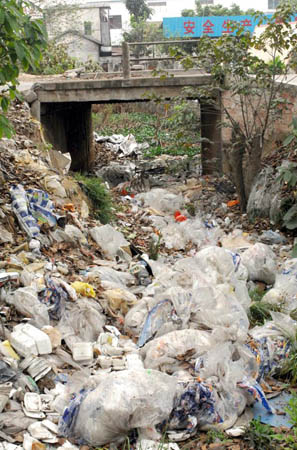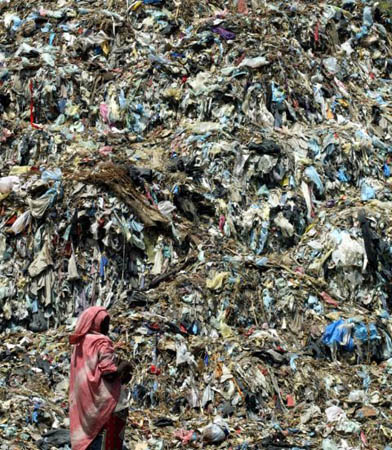The author of this article, the reverend Metropolitan of Pergamon fr. John Zizioulas, calls for a new concept of quality of life in a finite Creation.
|
Along with this, an understanding arose of the human person as a thinking individual whose happiness and prosperity acquired the status of the highest good in ethics. Sin became limited to whatever contradicts or prevents these. A Christian could, therefore, destroy nature with a clear and good conscience, as long as this contributed to the fulfilment of human happiness. Now, human beings are beginning to realize that such an attitude towards nature actually threatens human happiness, even human existence itself. In doing so, they are not departing from the principle of promoting human happiness. Indeed, they are deeply and almost exclusively motivated by it. The ecological crisis is thus still viewed and approached from the angle of human self-interest and not from those of love for the rest of God's creation or of a feeling of responsibility for the survival and welfare of whatever is not human on our planet. This complicates matters, for it is difficult to arrive at a common mind on the sacrifices that ought to be demanded of us in order to face the ecological problem in our consumerist society. Politicians find it extremely difficult to establish a scale of values that would satisfy humanity's self-interests. If, for example, a government decides to close down a certain factory on account of its pollution, unemployment will almost inevitably emerge as the main problem in the area, replacing damage to the environment. Even the most competent politicians or technocrats will find it extremely difficult, if not impossible, to cope with such a situation as long as peoples' motivation remains governed by self-interest. So motivation plays a decisive role in how the ecological problem is faced, and it is clear that human self-interest must give way to other motives, or be strongly conditioned by them. This gives the spiritual and religious dimension decisive importance for the ecological issue, from the practical point of view. What kind of motivation can religion offer people facing the ecological crisis? Here are some suggestions:
In the Orthodox Church - behind whose tradition lie long battles against ancient Greco-Roman paganism - a spirituality involving a deep respect for nature is strongly conditioned by the view that nature acquires sacredness only in and through the human person. This gives humanity decisive importance and responsibility. A human is the Priest of creation as he or she freely turns it into a vehicle of communion with God and fellow human beings. This means that material creation is not treated as a means of obtaining pleasure and happiness for the individual, but as a sacred gift from God which is meant to foster and promote communion with God and with others. Such a 'liturgical' use of nature by human beings leads to forms of culture which are deeply respectful of the material world while keeping the human person at the centre. A drastic revision of the concept of sin. Sin has been normally understood, by Christian ethics at least, in anthropological and sociological terms alone, because nature came to be understood as a 'servant' of humanity's self-interest and happiness. Sin became only what caused harm to oneself or to other human beings. Obviously, damage to nature does not fall within this category of 'sin'. This changes if nature ceases to be the slave of human interests and becomes an indispensable link of communion between human beings and with God. Since humans cannot operate as agents of relationship and communion without nature (our bodies are both indispensable to our identity and inconceivable without the rest of creation), any harm inflicted upon nature would render it incapable of performing its function as a vehicle of communion between us and with God. Sin against nature, therefore, is serious not only because it involves disrespect towards a divine gift, but also - and mainly - because it renders the human being incapable of fulfilling its relational nature. Human individualism goes hand-in-hand with sin against nature: the ecological crisis bears eloquent witness to that.
All this would inevitably involve major shifts of emphasis and basic revisions and redefinitions in political, economic and scientific and social institutions of all kinds. It would probably amount to no less than a cultural revolution. Such a reorientation of our culture would require the involvement and cooperation of all the factors responsible for forming it. It could not be simply a matter of technocratic planning; it would require a change in people's deeper convictions and motivations, since no human being can sacrifice anything without a reason or motive. Such reasons and motives can be characterized by either fear or love. Religions have employed both of these. The ecological crisis we are facing seems to suggest fear - the fear of the destruction of our planet - as the prevailing motive for a change of direction. We must insist, however, on more positive motives. Love of God's creation and our fellow human beings would lead us naturally to restrict the consumption of natural resources and share them more justly with other people. This can be done through education from the primary to the higher level, but perhaps nothing can be more effective for such a purpose than religion and the spirituality that stems from it. Every effort must be made to involve the religious communities in the environmental challenges of our time. The ecological problem is to a great extent a spiritual one.
|



